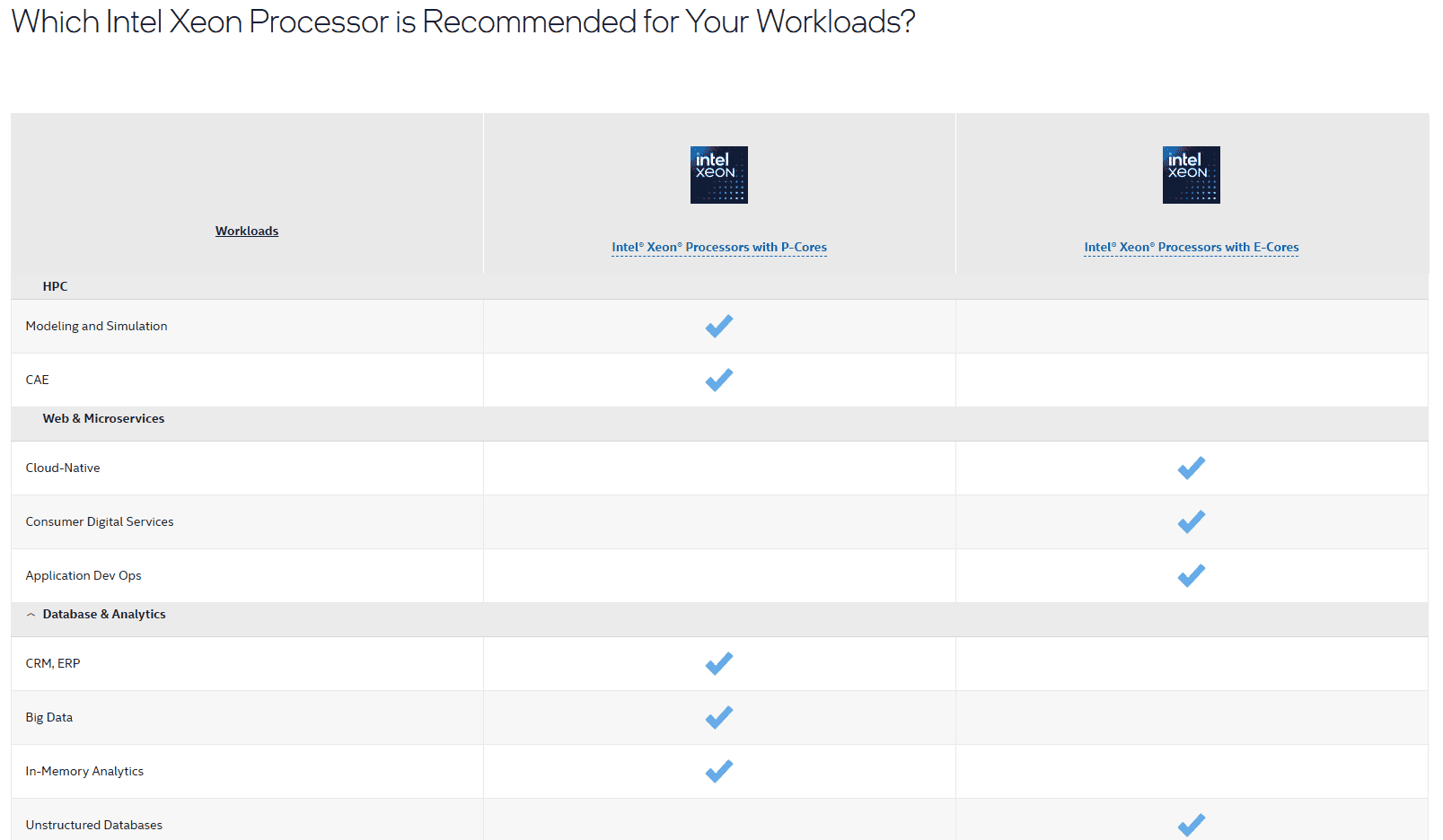Intel Xeon Scalable processors power modern data centers and cloud infrastructure. These chips offer high performance for demanding workloads like AI, analytics, and virtualization. The latest 5th generation Intel Xeon Scalable processors provide up to 50% better performance per watt compared to previous generations.
These processors come with built-in accelerators for AI, cryptography, and data compression. This allows you to run specialized workloads faster without extra hardware. Advanced security features like Intel Software Guard Extensions help protect sensitive data.
The Xeon Scalable family gives you flexibility for different computing needs. You can choose from Bronze, Silver, Gold, and Platinum tiers with varying core counts and speeds. The processors support a wide range of operating systems and applications for easy deployment.

| Feature | Benefit |
|---|---|
| Built-in accelerators | Faster AI and analytics |
| Advanced security | Better data protection |
| Multiple tiers | Flexible performance options |
| Wide OS support | Easy deployment |
Intel Xeon Scalable Processors: Powering the Modern Data Center
Intel Xeon Scalable processors are the driving force behind today’s data centers and high-performance computing (HPC) systems. Designed for demanding workloads, these processors offer a combination of performance, efficiency, and advanced features.
Generations of Xeon Scalable Processors
Intel has released several generations of Xeon Scalable processors, each with improvements in performance, architecture, and capabilities. Here’s a quick overview:
| Generation | Code Name | Key Features |
|---|---|---|
| 1st Gen | Skylake | Introduced mesh architecture, AVX-512, and increased core counts. |
| 2nd Gen | Cascade Lake | Enhanced performance, added security features, and Optane DC persistent memory support. |
| 3rd Gen | Cooper Lake | Increased memory bandwidth and AI acceleration. |
| 4th Gen | Sapphire Rapids | PCIe 5.0, DDR5 memory, and advanced matrix extensions (AMX). |
| 5th Gen | Emerald Rapids | Enhanced per-core performance, increased core counts, and improved power efficiency. |
| 6th Gen | Granite Rapids | Twice the performance of its predecessor, double the memory bandwidth, increased core count, AI acceleration in every core. |
Key Features and Benefits
- High Core Counts: Xeon Scalable processors offer a wide range of core counts, from a few cores for entry-level servers to over 60 cores for high-end systems. The 6th Gen Granite Rapids further increases core counts for even greater performance.
- Advanced Architecture: Features like mesh interconnect architecture and integrated accelerators enhance performance and efficiency.
- AI Acceleration: Built-in AI accelerators, such as Intel Deep Learning Boost, optimize machine learning workloads. The 6th generation embeds AI acceleration capabilities in every core.
- Security Features: Hardware-enhanced security features protect data and systems from threats.
- High Memory Bandwidth: Support for fast memory technologies like DDR5 ensures data-intensive applications have the bandwidth they need. The 6th generation doubles the memory bandwidth of its predecessor.
- Scalability: Xeon Scalable processors can power a wide range of systems, from single-socket servers to large-scale data centers.
6th Gen: Granite Rapids and Sierra Forest
Intel’s 6th generation Xeon Scalable processors mark a significant step forward.
- Granite Rapids: Launched in September 2024, these processors are designed for high-performance computing (HPC) applications, offering a substantial performance boost over previous generations.
- Sierra Forest: Launched in June 2024, these processors are optimized for cloud server customers, with a focus on efficiency and density.
Use Cases
Xeon Scalable processors are used in a variety of demanding environments, including:
- Data Centers: Cloud computing, enterprise applications, and databases.
- High-Performance Computing (HPC): Scientific research, financial modeling, and artificial intelligence.
- Artificial Intelligence (AI): Training and inferencing for machine learning models.
- Network Infrastructure: 5G networks, edge computing, and network function virtualization.
Choosing the Right Xeon Scalable Processor
Selecting the right Xeon Scalable processor depends on your specific needs and workload requirements. Consider factors such as:
- Core Count: The number of cores needed depends on the complexity and number of tasks you’ll be running.
- Frequency: Higher clock speeds are generally better for single-threaded applications.
- Memory: Choose the appropriate memory capacity and speed for your workload.
- Features: Consider specific features like AI acceleration or security enhancements based on your needs.
Product Overview
Intel Xeon Scalable processors offer advanced performance and capabilities for demanding workloads. These processors provide enhanced computing power, built-in accelerators, and security features for data centers and enterprise environments.
Key Features and Technologies
Intel Xeon Scalable processors boast built-in accelerators for AI and analytics workloads. They support high memory bandwidth and large memory capacities to handle data-intensive tasks. The processors include advanced security technologies to protect sensitive information.
Intel has designed these processors with a focus on energy efficiency. This helps reduce power consumption in data centers. The Xeon Scalable family supports a wide range of workloads, from cloud computing to high-performance computing.
| Feature | Benefit |
|---|---|
| Built-in accelerators | Improved AI and analytics performance |
| High memory bandwidth | Faster data processing |
| Advanced security | Enhanced data protection |
| Energy efficiency | Lower power consumption |
Chipset and Socket Compatibility
Xeon Scalable processors use specific sockets and chipsets for optimal performance. The latest generation supports the LGA 4677 socket. This ensures compatibility with modern server motherboards and platforms.
Intel designs these processors to work with their server chipsets. These chipsets provide additional features and connectivity options. They support PCIe lanes, storage interfaces, and networking capabilities.
The socket and chipset combination allows for scalability. You can choose from various processor models to match your performance needs.
Product Variants and Specifications
Intel offers several tiers of Xeon Scalable processors. These include Platinum, Gold, Silver, and Bronze levels. Each tier targets different workload requirements and price points.
The top-tier Xeon Platinum 8380 features 40 cores. It supports up to 6 TB of memory. This makes it suitable for the most demanding enterprise workloads.
Lower tiers offer fewer cores but maintain many advanced features. They provide a balance of performance and cost for various applications. Intel regularly updates the Xeon Scalable family with new models and improvements.
Base clock speeds vary across models, typically ranging from 2.0 GHz to 3.5 GHz. Turbo frequencies can reach up to 4.0 GHz or higher on some models.
Performance Metrics
Intel Xeon Scalable processors offer impressive performance across various metrics. These metrics help assess processor capabilities in different workload scenarios.
Core and Frequency Analysis
Xeon Scalable processors feature high core counts and clock speeds. The 5th Generation Intel Xeon Scalable processors offer up to 64 cores per socket. This allows for increased parallelism in demanding workloads.
Clock speeds vary by model. Some processors can reach over 4 GHz in boost mode. Higher frequencies enable faster single-threaded performance.
Cache size is another crucial factor. Larger caches reduce memory access times. This improves overall system responsiveness.
A comparison of core counts and frequencies:
| Processor Series | Max Cores | Max Base Frequency |
|---|---|---|
| Platinum 8500 | 64 | 3.0 GHz |
| Gold 6400 | 48 | 2.9 GHz |
| Silver 4400 | 32 | 2.5 GHz |
Power Efficiency and Thermal Design
Power efficiency is a key focus for Xeon processors. The Maximum Thermal Design Power (TDP) varies by model. It can range from 105W to 350W.
Intel’s 5th Generation Xeon processors offer improved power efficiency. They can deliver up to 1.25x performance per watt compared to previous generations with OPM enabled.
Advanced power management features help optimize energy use. These include:
- P-states for dynamic frequency scaling
- C-states for idle power reduction
- Turbo Boost for temporary performance increases
Thermal design improvements allow for better heat dissipation. This enables higher sustained performance in data center environments.
Memory Optimization
Xeon Scalable processors feature advanced memory controllers. These support high-speed DDR4 and DDR5 memory.
The latest generations support DDR5-5600 memory. This provides significantly higher bandwidth compared to previous DDR4 systems.
Key memory optimizations include:
- Support for up to 16 memory channels per socket
- Large memory capacity (up to 12 TB in 8-socket systems)
- Intel Optane Persistent Memory support
These features enable faster data access and improved performance for memory-intensive workloads. The increased memory bandwidth is particularly beneficial for AI and data analytics tasks.
AES encryption acceleration is also integrated. This allows for secure data handling with minimal performance impact.
Technological Advancements
Intel Xeon Scalable processors incorporate cutting-edge features to meet modern computing demands. These advancements focus on enhanced security, accelerated workloads, and improved AI and HPC capabilities.
Security Enhancements
Intel’s Xeon Scalable processors offer robust security features to protect sensitive data. The SGX Enclave provides a secure environment for running critical applications. This technology creates isolated memory regions that shield data from unauthorized access.
Advanced encryption capabilities are built into the hardware. These include support for SHA algorithms, which enable fast and secure hashing operations.
You can benefit from:
- Hardened protection against side-channel attacks
- Secure boot processes
- Runtime memory encryption
These features help safeguard your systems from evolving cyber threats.
Accelerating Workloads
Xeon Scalable processors are designed to speed up various workloads. They include built-in accelerators tailored for specific tasks.
Key accelerators include:
- AVX-512 for vector operations
- QuickAssist Technology for cryptography and data compression
- Intel Deep Learning Boost for AI inference
PCIe 4.0 support enables faster data transfer between components. This improvement is crucial for I/O-intensive applications.
You’ll experience enhanced performance in:
- Database operations
- Financial modeling
- Scientific simulations
These accelerators help you tackle compute-intensive tasks more efficiently.
AI and HPC Capabilities
Intel Xeon Scalable processors are optimized for AI and high-performance computing workloads. They offer improved performance for machine learning and deep learning applications.
Key AI enhancements include:
- Increased core counts for parallel processing
- Larger cache sizes to reduce data access latency
- Optimized instruction sets for AI algorithms
For HPC, you’ll benefit from:
- Higher memory bandwidth
- Enhanced floating-point performance
- Improved scalability for large clusters
These features enable you to train complex AI models and run advanced simulations faster. The processors are designed to handle the fastest-growing workloads in data centers and cloud environments.
| Capability | Benefit |
|---|---|
| AVX-512 | Accelerates vector operations |
| SGX Enclave | Provides secure data processing |
| PCIe 4.0 | Enables faster data transfer |
| DL Boost | Improves AI inference performance |
These advancements make Xeon Scalable processors suitable for a wide range of demanding applications.
Implementation and Use Cases
Intel Xeon Scalable processors offer versatile solutions for various industries and cloud environments. These processors excel in handling AI workloads, high-performance computing, and other demanding applications.
Integration with Cloud Services
Intel Xeon Scalable processors integrate seamlessly with major cloud platforms. They support application portability across different cloud environments. This flexibility allows you to choose the best cloud provider for your needs.
Cloud service providers optimize their infrastructure for Xeon processors. This optimization enhances performance for cloud-native applications. You can leverage built-in accelerators for AI and analytics workloads in the cloud.
Key benefits of Xeon processors in cloud environments:
- Improved virtual machine density
- Enhanced security features
- Support for containerized applications
Adaptation for Diverse Industries
Intel Xeon Scalable processors cater to a wide range of industries. They power AI, analytics, and HPC workloads across various sectors.
In manufacturing, these processors enable real-time data analysis and predictive maintenance. Healthcare organizations use them for medical imaging and genomic research. Financial institutions rely on Xeon processors for risk analysis and high-frequency trading.
| Industry | Use Case |
|---|---|
| Manufacturing | Real-time analytics, IoT |
| Healthcare | Medical imaging, genomics |
| Finance | Risk analysis, trading |
| Media | Content creation, streaming |
You can customize Xeon-based systems for your specific industry needs. System vendors offer tailored solutions that maximize the processors’ capabilities for your workloads.
Frequently Asked Questions
Intel Xeon Scalable processors offer advanced features and performance improvements over previous generations. These CPUs cater to diverse computing needs across various industries.
What distinguishes 2nd generation Intel Xeon Scalable processors from the first generation?
The 2nd generation Intel Xeon Scalable processors brought significant enhancements. They introduced AI acceleration capabilities and improved performance for data-intensive workloads. Memory capacity and bandwidth also increased.
These CPUs featured more cores and higher clock speeds. They also incorporated new security features to protect against side-channel attacks.
How does the performance of Intel Xeon Scalable processors compare to traditional Intel Xeon processors?
Intel Xeon Scalable processors offer superior performance compared to traditional Xeon CPUs. They provide higher core counts, faster memory access, and improved I/O capabilities.
The mesh architecture in Scalable processors reduces latency for core-to-cache and core-to-memory operations. This design enhances overall system performance, especially for data-intensive tasks.
What are the notable improvements in the latest generation of Intel Xeon Scalable processors?
The latest Intel Xeon Scalable processors feature significant upgrades. They offer increased core counts and higher base frequencies. These CPUs also provide enhanced support for AI and machine learning workloads.
Memory capabilities have expanded with support for faster DDR5 RAM. PCIe 5.0 connectivity allows for improved data transfer speeds. New security features help protect against emerging threats.
How does the Intel Xeon Scalable processors’ pricing structure compare to standard Xeon processors?
Intel Xeon Scalable processors generally come at a premium compared to standard Xeon CPUs. The pricing reflects their advanced features and performance capabilities.
The Scalable family offers different tiers (Bronze, Silver, Gold, and Platinum) with varying price points. This structure allows you to choose a processor that balances cost and performance for your specific needs.
What are the common use cases and applications for Intel Xeon Scalable processors?
Intel Xeon Scalable processors excel in various demanding environments. They are widely used in data centers for cloud computing, virtualization, and high-performance computing tasks.
These CPUs power AI applications, edge computing, and IoT deployments. They also serve telecommunications infrastructure and support complex analytics workloads.
Has Intel announced any discontinuation plans for specific Xeon Scalable processors?
Intel regularly updates its product lineup. While specific discontinuation plans may not be widely publicized, older generations of Xeon Scalable processors naturally phase out as newer versions are introduced.
You should check Intel’s official product pages or contact authorized distributors for the most up-to-date information on processor availability and support timelines.
| Generation | Key Features | Release Year |
|---|---|---|
| 1st Gen | Mesh Architecture, AVX-512 | 2017 |
| 2nd Gen | AI Acceleration, Improved Security | 2019 |
| 3rd Gen | PCIe 4.0, Higher Core Counts | 2021 |
| 4th Gen | DDR5 Support, PCIe 5.0 | 2023 |







